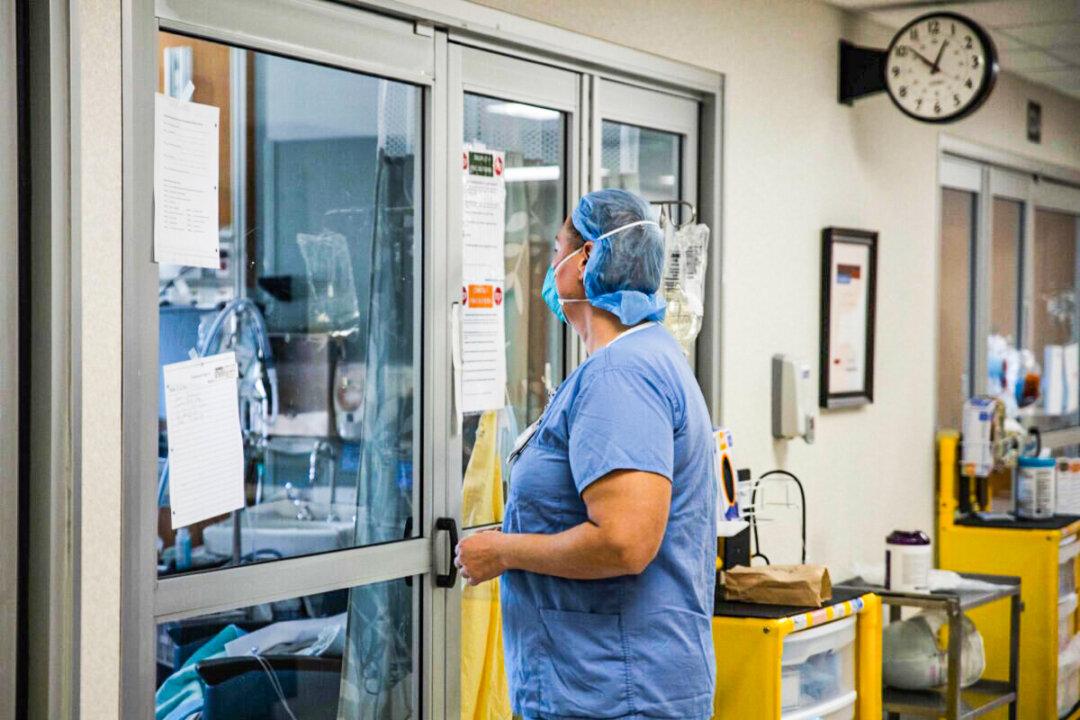A committee of infectious disease researchers issued a statement this week urging hospitals to stop testing new admissions for COVID-19, saying that doing so will extend patients’ wait times.
Researchers and doctors affiliated with the Society for Healthcare Epidemiology of America, a nonprofit organization, stated that hospitals shouldn’t automatically test for the virus because it can cause “delays in patient placement” and “postponement of necessary procedures” unrelated to COVID-19, according to a research paper published online by Cambridge University.





